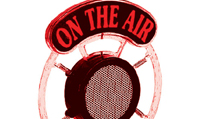Music is a universal language. Through music, you can communicate across cultural boundaries and connect with people on an emotional level. Being a musician is what gives you life and sharing that music should be a joyous experience. If you’re like many musicians, however, even the thought of performing in front of a crowd starts your heart racing, your knees shaking, and your hands sweating.
Performance anxiety or stage fright is extremely common––even musical legends such as Barbra Streisand and Adele know what it feels like. The good news is you can learn to manage your nerves. You may never set foot on stage completely free from anxiety, but the following tips will help you overcome your stage fright so you can keep doing what you love.
1. Learn to Recognize the Symptoms
Performance anxiety produces physical and psychological symptoms that can become very severe. The trick to keeping your anxiety from spiraling out of control is to catch it before it does. Pay attention to how you feel when you think about an upcoming performance and look
for symptoms like racing pulse, rapid breathing, dry mouth, trembling, sweating and nausea. Learning to recognize these symptoms helps you tune in to your body so you can take steps to control them before they control you.
2. Channel Your Nerves
Once you understand the effects stage fright have on your body, you can react to the symptoms instead
of letting them take over. Channel your nervous energy into a practice session so you get used to performing through the fear. When you see that it’s possible to succeed in spite of your symptoms, suddenly those symptoms hold less power over you. Your anxiety is something that affects you––it doesn’t define who you are as a person or as a musician.
3. Don’t Change Your Routine
In times of stress, every bit of stability you can hold on to helps. Stick to your normal routine in the days leading up to your performance, to keep yourself healthy. Make sure you get enough sleep, follow a healthy diet and avoid too much caffeine or alcohol. Don’t forget to stay hydrated as well. If you start to feel nervous, try going for a walk to work off the excess energy.
4. Hold a Dress Rehearsal
Nothing can fully prepare you for the feeling of stepping on stage in front of a crowd, but simulating the experience will help you prepare. If you have access to the venue ahead of time, hold a dress rehearsal with family and friends. Make the dress rehearsal as realistic as possible, down to the clothes you wear. When it comes time for the real performance, it won’t feel like the first time and that might dim your anxiety. The more you practice the more confident you’ll become.
5. Simulate the Performance
If you’re unable to hold a dress rehearsal in the performance space, a simulated performance may be the next best option. Virtual reality exposure therapy is a clinical tool used to slowly desensitize the brain to the psycho-physiological activation that triggers anxiety symptoms. It involves the use of virtual reality technology to mimic a 360-degree simulation of the performance experience. Simply imagining yourself going through the performance in your head may help as well. When the simulation starts to make you feel nervous, practice the relaxation and breathing techniques you’ve learned to help calm yourself.
6. Remember Your True Purpose
Though your anxiety is very real, the truth is that it is subjective. No one knows what’s going on in your head and they won’t know you’re nervous unless you show it. You are in control of the audience’s experience. If you allow yourself to be overcome by nerves, it becomes a distraction and takes away from the true purpose of the evening: the music. Remember why you’re there and why you do what you do. Let the music be your motivation and your guide.
7. Learn How to Calm Yourself Down
When you start to feel nervous, it creates a snowball effect of physical and psychological symptoms. Your whole body tenses up, which will only make matters worse. Learning progressive muscle relaxation or deep breathing techniques gives you a tool to calm your body and your mind when anxiety starts to overwhelm you. Practice these things at home and use them before your performance. If the symptoms of your anxiety are overwhelming, consider a beta-blocker like propranolol to take the edge off.
8. Think Positive Thoughts
Confidence is the strongest weapon against anxiety. Though you may feel the opposite of confidence, remember that confidence is a mindset. Reinforcing patterns of self- doubt and negative thoughts will only make you feel worse and the nerves will impact your performance. Instead, remind yourself how much you’ve practiced and how well you’ve prepared. Think about the supportive friends and family you’ll have in the audience and know that even if you do make a mistake, it isn’t the end of the world.
9. Give Yourself a Break
Making a mistake is every performer’s worst nightmare. When you allow negative thoughts to build inside your head, it starts to feel like any mistake you make on stage is a personal failure––that it says something about who you are as a person. Remember your purpose is to share your music and that’s why everyone is there. No one expects or wants you to fail. Give yourself permission to enjoy the experience, accepting that mistakes might happen, but they won’t invalidate the entire performance. Becoming the musician you are today is something you’ve worked for your entire life. Change doesn’t come easily or quickly and overcoming your stage fright will take time. By implementing these tips and learning to manage your fears, however, you can continue to share your music with the world.












